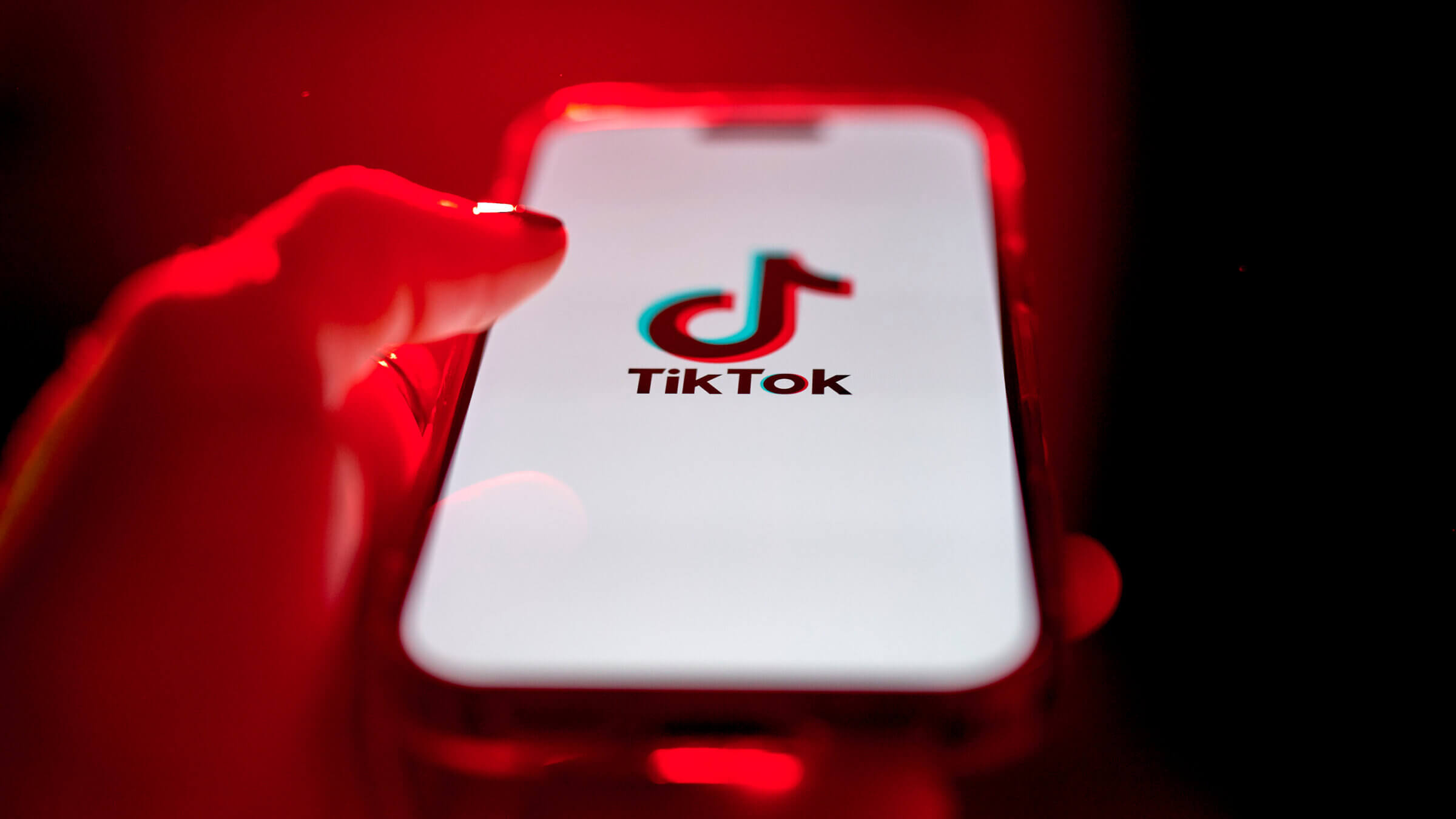What we can learn from antisemitism on TikTok
While some users are just looking to troll Jewish creators, others who seem to be responding to the confusing way that antisemitism has been framed in recent years

TikTok is an increasingly popular source of news for young Americans, and discussions of antisemitism on the platform are often full of combative responses. Photo by Gabby Jones/Bloomberg via Getty Images
Antisemitism Decoded is the Forward’s biweekly newsletter that helps you separate the signal from the noise and understand current debates over Jewish safety. Sign-up here.
There was a time when the only people who would be interested in a newsletter like this were folks who already knew a lot about Jews and antisemitism. But amid rising antisemitism over the past few years, Jews in the United States have mounted what is likely the largest campaign against antisemitism in world history.
There are billboards and Super Bowl commercials and lawsuits and two successive presidential administrations who have stated that countering antisemitism is a top priority, spawning special ambassadorships, national strategies, Congressional legislation, federal investigations and even immigration action.
The share of Americans who said they’d heard the term “antisemitism” and knew what it meant rose 30% between 2020 and last year. It now stands around 70% — more than the 60% who say they know someone who is Jewish.
Suddenly, a whole lot of people who have never cared or thought much about Jews or antisemitism have feelings about the topic.
***
I recently started adapting some of my antisemitism reporting into videos for TikTok, the social media platform famed for its addictive algorithm that matches viewers with shortform video content that interests them. And while some Forward readers have told me that I’m downplaying the severity of antisemitism, when I offer the exact same analysis on TikTok, many of the responses come from people angry that I’m talking about antisemitism at all.
“Leading a genocide causes backlash,” one user commented on my video about how both Jewish and Muslim students have experienced discrimination at Columbia University. “You don’t have a hate crime problem, you have an accountability problem.”
When I posted clips from obviously antisemitic cartoons accusing Jews of drawing the United States into war with Iran in June, a user named Jaycie Parker replied: “Not antisemitism if that’s what they are actually doing.”
And I’m hardly alone. When TikTok creators make the most basic complaints about antisemitism, the comment section inevitably features a mix of supportive comments alongside users defending animosity toward Jews.
When one woman asked why she was getting so many antisemitic videos in her TikTok feed, a user named Top J replied to her. The answer was “simple,” he explained. It was only natural that she would come across antisemitic videos because “over 80% of the Jewish population supports Israel… and we all know what Israel is doing right now.”
When a creator named Ilana made a video saying that it was antisemitic to assume every Jewish person was a Zionist, DillPickle told her to “get off your high horse about ‘you people need to separate religion from this war.’”
After Moriel Shikvi, a visibly Orthodox Jewish college student, posted a video of her friends being harassed by a street performer in Italy with the caption “antisemitism in Europe,” the vast majority of responses mocked the group. “Oy vey we are always the victims,” one person responded.
“Professional victimhood is just very last season,” another wrote.
***
TikTok is a hugely influential platform where 39% of Americans between 18 and 29 say they get their news. And much of the discomfort that young Jews have felt on college campuses more recently has come more from what their peers are posting on social media, which is nearly impossible for schools to police, as from anything happening in the classroom or on the quad.
Some of the questionable views about antisemitism on TikTok clearly come from people who just don’t like Jews and are looking to troll Jewish creators. But other users who dismiss the seriousness of antisemitism seem to be responding, at least in part, to the way in which the issue has been framed in recent years.
There is a consensus across the political spectrum, at least among Jews, that it is antisemitic to assume that because someone is Jewish they must support Israel.
At the same time, the argument that anti-Zionism is inherently antisemitic — which has been adopted by the country’s largest Jewish advocacy groups and the Trump administration — is rooted in the notion that support for Israel is an integral part of being Jewish and that the Jews who reject this connection are, at best, fringe voices that don’t represent the community.
These two messages are obviously at odds with each other and, at least on social media, many people seem to have decided that if Zionism is an integral part of being Jewish then it’s not antisemitic to assume that random Jews in the diaspora support Israel.
“You cannot disagree that Jewish people have a larger responsibility to speak up and denounce Zionism loudly, louder than anyone else!” one user replied to Ilana’s video. “Zionism is strong in a lot of Jewish upbringing.”
Others seem to have reached the opposite conclusion. They agree that it’s wrong to assume that every Jew is a Zionist, but only by rejecting the idea that Zionism has an inherent relationship to Jews or Judaism.
This separation can convince them that, despite ample evidence to the contrary, no expression of animosity toward Israel could possibly be antisemitic. When I referred to “antisemitism related to the war in Gaza” in my TikTok video about Columbia, one user swooped in to inform me that there was no such thing. “This a great example of the overuse of the word,” they wrote.
I’m sure that some of the people leaving these comments are being intentionally obtuse. Yet there’s something tragic about witnessing such a widespread misunderstanding of antisemitism at a time when so many resources are being devoted to addressing the issue and, one might hope, reaching anyone with an open mind.
















